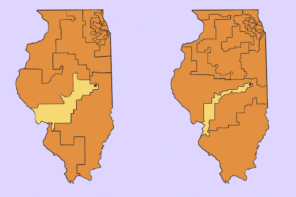The State of Oklahoma overwhelmingly supported Measure 755 in last week’s elections, forbidding the use of international and Shari’ah law in state courts. A week earlier, literary theorist Stanley Fish penned a piece for the New York Times exploring the conflicts that emerge when Muslim immigrants to Western nations “evidence a desire to order their affairs, especially domestic affairs, by Shari’ah law rather than by the supposedly neutral law of a godless liberalism.”
Fish is well-known for exposing the tensions between our political ideals and the practical demands of life in a pluralistic society. He does so in a way that is almost always entertaining and usually helpful, especially as a reminder that achieving justice is seldom as neat and clean as applying principles. Unfortunately, he also has a tendency to amp up the tension beyond all recognition of the actual conflicts we face. The results are like an overexposed photograph, interesting and provocative in that it helps us see things in a new way, but also distorting of our actual circumstances.
As is the case with a recent Times post, “Serving Two Masters: Shariah Law and the Secular State,” Fish has a tendency to pit liberal or secular theory against a strongly held religious conviction or practice. In this case, the philosophers John Locke and John Rawls are pitted against Islamic law or Shari’ah. Locke and Rawls are, of course, standard bearers for the liberal theory that, according to Fish, strongly informs our legal system, with its emphasis on individual rights. For evidence, he points to the Supreme Court’s 1990 decision, Employment Division v. Smith, the famous case in which a divided Supreme Court ruled against the religious use of peyote based on the general applicability of the law.
Fish writes:
The answer the court gave, with Justice Antonin Scalia writing for the majority, was that the religious believer must yield to the law of the state so long as that law was not passed with the intention of curtailing or regulating his or anyone else’s religious practice.
The lesson we should learn is that the law is a blunt force, especially when it comes to limiting the rights of communities, be they Native American or Muslims who practice Shari’ah. Rather than litigate such disputes Fish advises us to rely on political processes to find compromises acceptable to the parties involved. The argument is provocative and succeeds in raising important questions, but it also makes common cause with opponents of both secular government and Islam in reinforcing the assumption that the nation’s political theory is a poor fit with Islam. In doing so, he misrepresents the nation’s political theory, Islamic law, and the place of religion in our constitutional democracy.
For starters, Fish fails to mention that while the US Constitution provides for a secular politics, it’s a different kind of secular politics than that of some European nations; premised as it is on respect for conscience—especially religious conscience. The document is not grounded consistently in the strident form of liberalism that Fish portrays. Indeed, it is curious that Fish refers to the Smith decision, while ignoring the significant controversy it sparked in virtually every milieu; from the courts to the government, and among liberals and conservatives alike. That response indicates that our culture and legal system are more nuanced and pragmatic than some think or would prefer.
The Amish cases, allowing the Amish to educate their children outside of the mandatory school system, would also seem to be significant counter-examples concerning the tension between religious communities and individual rights. I suspect that Fish would agree, but the stress he places on liberal theory might help avoid the more complicated reality. Perhaps I am worried about nothing here; after all, there is an important distinction between liberal theory and the American political system and its theoretical underpinnings, but why not just say as much?
Ironically, Fish risks serving as an “expert witness” for those who insist that our government should formally recognize Christianity as the nation’s religion. Fish’s praise of theologian John Milbank, who wrote that “only a distinctly Christian polity—not a secular postmodern one—can actually accord Islam the respect it seeks as a religion,” only heightens this possibility. It also further confuses matters because it ignores the differences between two very different religious cultures, the United States and Britain. The United States remains a proudly religious nation, while Britain is significantly more modest in its observance and public expression of religion. This much is bothersome as a wide range of culture warriors, from those who insist that this is a “Christian Nation” to those who believe that religion must be absolutely separate from politics, might use Fish to insist that their opponents should be marginalized.
The more worrisome angle, however, is what Fish has to say about Islam, which is already suspect in the eyes of many Americans who hear the word “Shari’ah” and reflexively think of oppressive regimes like Saudi Arabia. Fish heightens such anxieties when he passes along a generalization about the difference between Muslims and the West made by Ann Black in her book Shari’a in the West (Oxford, 2010), “Muslims do not conceptualize Islam in terms of the Westernized sociological categorization of religion which places the individual at the centre of all analyses.”
This isolated statement may well be read to suggest that Muslims fundamentally deviate from Western norms, no matter their culture, history, type of Islam, or even socioeconomic variables. There is something to the point about difference, but it should be seen as part of much larger and more complicated history of Muslims and modern western culture. Islam, it is often pointed out, is part of the West’s internal story.
This same claim about difference on individual rights versus communal rights was also made of Catholics and Jews. Historically, Christianity and Judaism are, much like Islam, communal religions. Why Western culture came to celebrate the individual is a long and complicated question. I tend to agree with those who think the Protestant Reformation and the First Amendment had something to do with it, but it would be wrong to assume that Muslims don’t care deeply about conscience. If counter-examples can be cited from Islam’s long and diverse history, the same is true of Christian history.
The reality is that Islam has internal resources that encourage Muslims to appreciate the sanctity of conscience and the rule of law. The Qur’an, for instance, speaks of human beings as representatives of God with a special dignity worthy of respect. Such convictions should find free expression in the United States. On the particular question of Shari’ah, we have good reason to expect the overwhelming majority of American Muslims (as with other Americans) to respect individual rights. Moreover, they will do so, not in opposition to their faith, but as part of their striving to be good Muslims. This is not to suggest that every Muslim or even every American Muslim affirms individual rights, but then neither has every American Christian. Indeed, the so-called Culture Wars are in large part a debate about those rights, particularly the rights of sexual orientation and reproduction.
The point is not that there are no tensions between any Muslims and American democracy. Many of us experience some form of inner conflict between our deepest convictions and the values of the larger culture, whether over issues with consumption or the freedom to marry. At times the tension even concerns a matter of the law, as was the case when protesters in the Civil Rights Movement violated court orders that prohibited them from marching. In his “Letter from Birmingham Jail,” Martin Luther King Jr. claims that one of democracy’s greatest strengths is that it recognizes such dissent when conducted peacefully, openly, and with the intent of making our democracy stronger.
Our constitutional democracy is not only capable of respecting conscience but of welcoming it into an ongoing conversation about what it means to be an American. American Muslims are just that, American and Muslim, and as both they are well positioned—perhaps uniquely so—to make significant contributions to our democratic society and to the global debate about the meaning of Islam and democracy.




